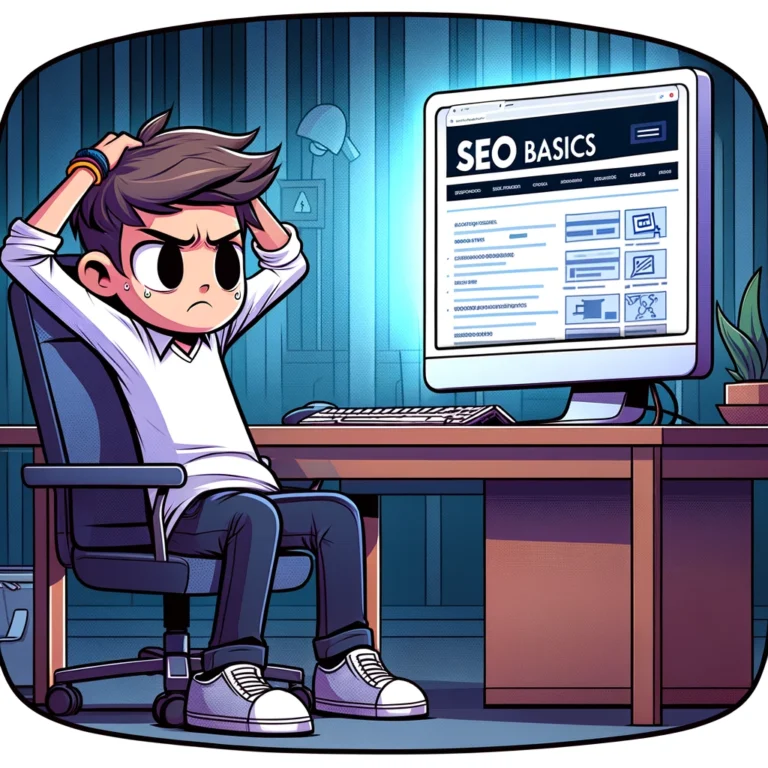Understanding the Role of Content in SEO
When diving into the world of Do-it-Yourself SEO, it’s essential to understand the pivotal role that content creation plays in achieving desirable search engine optimization outcomes. Content is the foundation upon which many SEO strategies are built, serving not just as a vehicle for keyword placement but also as a tool to engage and retain audience interest. Here, we unpack why consistent content creation is not just beneficial but necessary for maintaining and enhancing your website’s SEO performance.
Why Consistency Matters
Consistency in content creation impacts SEO in several powerful ways. Firstly, it signals to search engines like Google that your website is active, relevant, and a potential valuable resource for users. Search engines aim to provide users with the most up-to-date and relevant information. Regularly updated sites can be perceived as more reliable and authoritative than those that seldom post new content. Moreover, consistent updates provide ongoing opportunities to optimize for new and diverse keywords, which can help expand your site’s visibility across different search queries. Over time, this approach does not just widen your reach but deepens user engagement as well, by continuously providing fresh, interesting content that meets the changing needs and interests of your audience.
Quality and Quantity: Striking the Right Balance
While the frequency of posts is crucial, it’s the quality of the content that often makes the most significant impact. High-quality content — well-researched, well-written and deeply informative — is more likely to earn backlinks and social shares, which are critical components of SEO success. These elements serve as endorsements of your content’s credibility, further boosting your site’s authority and ranking in search engine results pages (SERPs). It’s important, therefore, to find a balance where you can consistently produce content that doesn’t compromise on quality. This might mean choosing a sustainable content posting schedule that aligns with your capacity to produce genuinely useful and engaging material.
Content Types and SEO Versatility
Embracing a variety of content types can also enhance your SEO efforts. Blogs, infographics, videos, podcasts, and case studies cater to different preferences in content consumption, which can help capture a broader audience. Each type of content also offers unique opportunities for optimization and engagement. For example, video content can reduce bounce rates and increase time spent on site, whereas infographics are shareable and can help in acquiring external links.
Monitoring Your SEO Performance
As you embark on this consistent content creation journey, monitoring your SEO performance becomes indispensable. Tracking how well your content performs in terms of rankings, traffic, engagement, and conversions helps you adjust your strategies effectively. Tools like Google Analytics, Google Search Console, and various other third-party tools can provide insights into how your SEO efforts are faring. Using these tools, you can see which pieces of content are doing well and which aren’t resonating as much with your audience. This information is crucial for refining your content strategy and ensuring that your efforts are not in vain. Additionally, SEO monitoring allows you to understand better how search engines are evolving, helping you to adapt your tactics to new algorithms and maintain your site’s visibility in search results. —Consistent, high-quality content creation is undeniably central to successful DIY SEO.
By recognizing its importance and effectively integrating it into your overall digital marketing strategy, you can significantly enhance your site’s search engine ranking and visibility. Maintain a pulse on the performance of your content and be ready to adapt to feedback and analytics. This way, you’re not just keeping up with SEO trends but staying ahead, ensuring your website remains relevant and visible in the ever-evolving landscape of search engines.
Leveraging Content to Build User Trust and Authority
Building trust and authority through your content is another critical aspect of SEO that can significantly influence your website’s performance in search results. When your content consistently solves problems, answers questions, and provides valuable insights, it establishes your site as an authority in your niche. This trust isn’t just perceived by your audience; search engines recognize it as well.
The Impact of Trustworthy Content on SEO
Search engines are designed to prioritize content that demonstrates expertise, authoritativeness, and trustworthiness (E-A-T). Websites that are frequently updated with high-quality content that users find useful may achieve higher rankings. This is why developing a content strategy that emphasizes the creation of authoritative content can have a profound impact on your site’s SEO success. Creating content that reflects expertise requires a deep understanding of your subject matter and the needs of your audience. It involves thorough research, clear explanations, detailed analysis, and the presentation of factual, accurate information. Whenever possible, support your content with data, case studies, or examples that can add further weight to the information provided.

Engaging with Your Audience Through Content
Engagement is another crucial factor that content creators cannot afford to overlook. Engaging content not only keeps visitors on your page longer but also encourages them to interact with your content through comments, shares, and other social media actions. These interactions send positive signals to search engines, indicating that users find value in your content. To enhance engagement, consider incorporating elements such as:
- Questions and CallstoAction: Prompt your readers to think or take specific actions after reading your content. This can be as simple as asking a thoughtprovoking question or encouraging them to sign up for a newsletter.
- Interactive Elements: Include polls, quizzes, or interactive infographics that make your content not just informative but also fun and engaging.
- Feedback Opportunities: Encourage your audience to leave comments or suggestions. Show that you value their input by responding to comments and adapting your content based on their feedback.
Building Relationships through Collaborative Content
Collaborative content, such as guest posts, interviews, and expert panels, can also amplify your SEO efforts. These collaborations expand your content’s reach and increase its credibility at the same time. Partnering with respected figures in your industry or allowing guest writers to contribute to your blog can introduce your audience to fresh perspectives and new information, which can keep them coming back. By incorporating these strategies, you not only enhance the authority of your content but also create a more dynamic and interactive environment for your users. This approach not only meets the demands of search engines but significantly enhances the user experience, leading to better engagement and retention rates. In the evolving world of SEO, staying adaptive and attentive to changing user needs and preferences is key to sustained visibility and success.
Harnessing the Power of User-Generated Content
User-generated content (UGC) is a powerful tool that can further bolster your site’s trust and authority. When your audience contributes content, whether through reviews, testimonials, or social media posts, it adds a layer of authenticity and peer validation that is hard to achieve through traditional content strategies alone. Encouraging UGC not only adds diversity to your content but also builds a community around your brand. Seeing real people endorse your products or services naturally enhances trust among prospective customers and can influence their buying decisions. Moreover, user-generated content can boost your SEO as it keeps the content on your platforms fresh and updated, which search engines favor. To make the most out of UGC, you could:
- Highlight customer testimonials on your product pages or on a dedicated section of your website. This not only shows that you value your customers’ feedback but also gives prospects an unbiased view of your offerings.
- Organize contests or campaigns that encourage users to create content related to your brand. This could be anything from photos and videos to blog posts. Making sure to acknowledge and reward the best contributions not only drives participation but also incentivizes other users to engage with your content.
- Create a hashtag strategy for social media to help streamline contributions and increase visibility. This makes it easier for you to find and share usergenerated content but also helps to create a community feeling among your audience as they see their content featured on your platforms.
By strategically leveraging user-generated content, you not only enrich your content pool but also reinforce the authenticity and reliability of your brand. This strategy ensures that every piece of content you produce or is produced about you plays a part in building a stronger, more trusted connection with your audience, ultimately enhancing your overall SEO strategy.
Conclusion
As the digital landscape continues to evolve, embracing user-generated content is becoming an indispensable strategy for enhancing brand authenticity and engaging with your audience on a deeper level. By integrating UGC, brands not only enrich their content offerings but also foster a vibrant community atmosphere where consumers feel valued and connected. This approach can significantly amplify trust, as prospective customers often seek reassurance from fellow users before making purchasing decisions. Effectively leveraging UGC underscores a brand’s commitment to its customers by continuously showcasing real experiences and feedback. Whether through social media initiatives, dynamic contests, or simply encouraging reviews and testimonials, the inclusion of genuine user voices makes your content ecosystem rich and diverse. Furthermore, this strategy brings with it the added benefit of boosting SEO through fresh, relevant, and continuously updating content that engages users and search engines alike.
Embracing user-generated content ultimately positions your brand as not just a provider but a platform where voices are heard and valued. It’s a dynamic method to sustain growth and relevance in a competitive market. Harness the power of UGC and watch your brand’s trust and authority soar, making every customer a part of your brand’s success story.
References
- Barker, S. (2020). Content Marketing for SEO: Beginner’s Guide. Wiley & Sons.
- Chaffey, D., & Ellis-Chadwick, F. (2019). Digital Marketing. Pearson Education.
- Fishkin, R. (2018). Lost and Founder: A Painfully Honest Field Guide to the Startup World. Penguin Books. Discusses the role of content in growing digital footprints.
- Patel, N., & Agius, A. (2021). Successful SEO and Search Marketing in a Week. Teach Yourself Books.
- Pulizzi, J. (2014). Epic Content Marketing: How to Tell a Different Story, Break Through the Clutter, and Win More Customers by Marketing Less. McGraw-Hill Education.
- Schwartz, B. (2022, June 7). Six tips to ensure your content consistently ranks well on Google. Search Engine Roundtable.
- Simmons, C. (2023). SEO Content Strategy: Boosting Your Site’s Visibility. O’Reilly Media.



